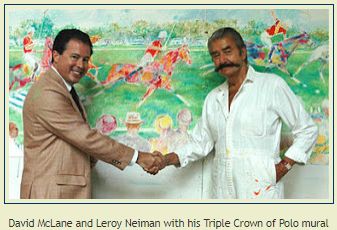In a precedential ruling, the Board considered Petitioner USPA's motion challenging Respondent McLane's confidentiality designations applied to certain documents and interrogatory responses pursuant to the Board's Standard Protective Order. The Board granted petitioner's motion in large part, requiring re-designation of the responses and some of the documents. United States Polo Association v. David McLane Enterprises, Inc., Cancellation No. 92066233 (March 25, 2019) [precedential] (Opinion by M. Catherine Faint, Interlocutory Attorney).

The Board's Standard Protective Order ("SPO") provides for two tiers of protected information: (1) Confidential and (2) Confidential – For Attorneys' Eyes Only (trade secret/commercially sensitive) (hereafter "AEO"). The Board cited TBMP Section 412.01 [although the TBMP is not the law - ed.] for an explanation of the applicability of those two terms. The SPO (at paragraph 1) itself describes generally the types of information that may qualify as AEO. Of course, the designations dictate the level of protection accorded: i.e., who may have access to the information and materials. Essentially, parties, including inside counsel, have access to "Confidential" information but not AEO information. In either case, the information is shielded from public view by the Board.
Respondent bore the burden of demonstrating the appropriateness of its confidentiality designations. See SPO para. 14. Because the parties were unable to agree on a modification of the SPO (respondent wanted to restrict access to "Confidential" information to a single in-house attorney), the Board was required to decide which of the two "default designations" applied to the documents and information in dispute.
Interrogatory responses: The Board reviewed three of Respondent McLane's interrogatory responses, which concerned the identification of agreements, gross sales figures under the mark at issue, and the identity of persons who communicated with McLane regarding use of the mark. McLane had designated its responses AEO, asserting that Petitioner USPA, a direct competitor, would gain an advantage in future business deals if armed with this information.
The Board, however, observed that the SPO states that information protected under the order may be used only in connection with the Board proceeding, and each party is obligated to maintain the confidentiality of the information and must exercise reasonable care in that regard. McLane failed to show that disclosure of the information to Petitioner USPA would cause any injury, "let alone a clearly defined, serious injury," to McLane's business. Nor did McLane produce "any evidence" supporting its fear that USPA would violate the protective order by misusing the information provided.
The Board did allow the "Confidential" designation for these responses, since gross sales figures are "routinely" treated as confidential in Board proceedings and since individual third parties named in the responses presumably expected their identities to remain private.
Documents: The documents at issue, designated AEO by Respondent McLane, fell into the following six categories:
(1) agreements with ESPN. These documents were more than 10 years old, and therefore "stale." The Board allowed them to be labeled "Confidential." Documents reflecting negotiations qualified as AEO.
(2) financing and operating agreements. Although more than ten years old, these documents disclosed the shares of each of respondent's members, and therefore are appropriately designated AEO.
(3) sponsorship opportunities. All except one of these documents were appropriately designated AEO, since they disclose respondent's marketing strategies. A single document, indicating what respondent would charge sponsors in 2008, must be re-designated as "Confidential."
(4) daily planner entries and notes. Respondent failed to address these documents, but the Board allowed them to be designated as "Confidential," since they include third-party personal information.
(5) respondent's plans in 2017. Again, respondent failed to address these documents. Two appeared to be publicly available announcements meriting no protection under the SPO. The remaining document included email correspondence and proposed business terms and merited the "Confidential" designation.
(6) invoices. Respondent again failed to address these documents. The invoices related to charges for hosting and domain registration services and, because they contain information regarding the cost of maintaining respondent's website, they may be designated "Confidential."
The Board ordered proceedings to resume in accordance with a new scheduling order.
Read comments and post your comment here.
The content of this article is intended to provide a general guide to the subject matter. Specialist advice should be sought about your specific circumstances.

